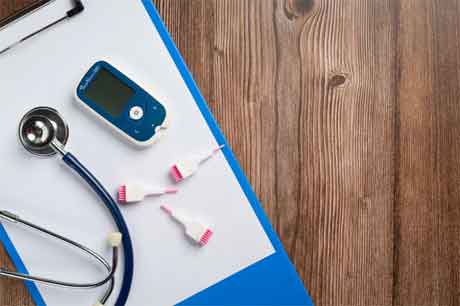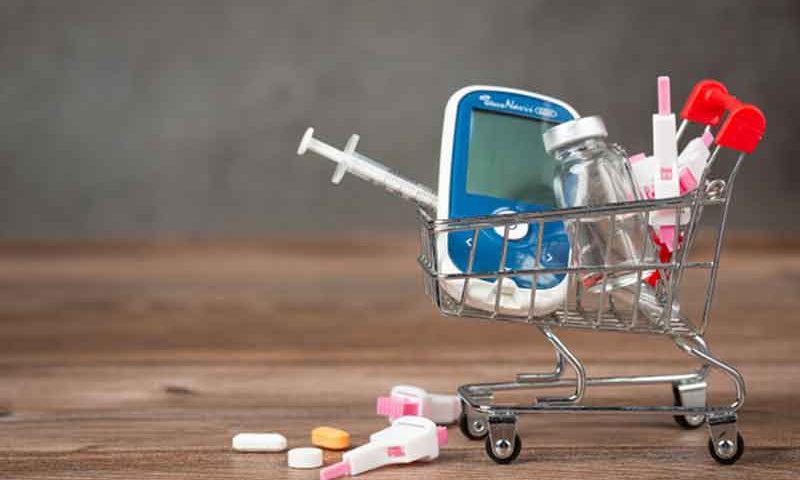When diabetics get sick, their bodies are under stress. When stress occurs, the body prepares for action. Levels of hormones rise to make extra stored energy (glucose and fat) available to cells. These cells then get ready to help you get away from danger. In diabetics, this fight-or-flight syndrome does not work well, according to the American Diabetic Association. Insulin is not able to let that extra energy into cells. This causes glucose to pile up in the blood, blood sugars to rise throwing off all of a diabetics efforts in control.
Monitoring Blood Glucose
Glucose levels become harder to control under any kind of duress. Adrenaline is released to help fight off what the body thinks is hurting it. Unfortunately, this helpfulness has side effects. The blood glucose level rises to meet the body’s need. For this reason, diabetics should not stop medication during illness.
Continue to take all diabetic medications. Insulin or oral medications both have the potential to need an adjustment during illness. When unable to take medication, call a healthcare provider immediately. When under the weather, pay extra attention to glucose levels, and over all diabetes management, read more from here.
Monitoring blood glucose is very important. If monitoring occurs only once or twice daily, finger sticks should increase to every three to four hours. If glucose becomes high, monitoring should occur more often. If glucose reaches 240 mg/dl or higher, with type 1 diabetes, it is necessary to test urine ketones as well.

Eating an Appropriate Diet
Eat the same amount of carbohydrates eaten when healthy. Make tasty substitutions if nausea and vomiting are present. When having difficulty eating, select carbohydrate foods on the higher end of the Glycemic Index.
Try to drink four (half a cup) to six ounces (three quarters of a cup) of caffeine-free liquids every 30 to 60 minutes. This can help prevent hypoglycemia caused by fasting or extra insulin.
Medications That are Safe
Many over-the-counter medications contain sugar, alcohol or both. Although there might not be too much sugar in one dose of cough syrup, it can add up if taken every four hours. If unable to obtain sugar free products, just account for the carbohydrates in the meal plan.
Keep a supply medication that is safe for diabetics to take. Read all labels. Cough syrups and cough drops often contain sugar. Check all over the counter medications for sugar content before use. Selecting sugar-free medications is acceptable, but be aware that these can cause diarrhea. Be aware that some antibiotics, decongestants and other cold products can change blood sugar levels.
Controling Diarrhea and Vomiting
Try to control any vomiting or diarrhea as quickly as possible, because they can cause the loss of valuable fluids and carbohydrates. Three ounces of regular ginger ale or cola every hour can act as an antiemetic and provides needed carbohydrates. When vomiting occurs, medications may not be able to remain in the stomach. Call a health care provider if you continue to vomit and have diarrhea. You may need intravenous infusions with glucose.
Appropriate diet, glucose control, medication, and interaction with a diabetic healthcare team can help manage common illnesses. Before illness occurs contact a diabetic healthcare team member, and set up a sick day plan. If the dietitian sets up a sick day plan ahead of time, most likely there will be favorite comfort foods like soups or frozen fruit bars on hand during the cold and flu season.

